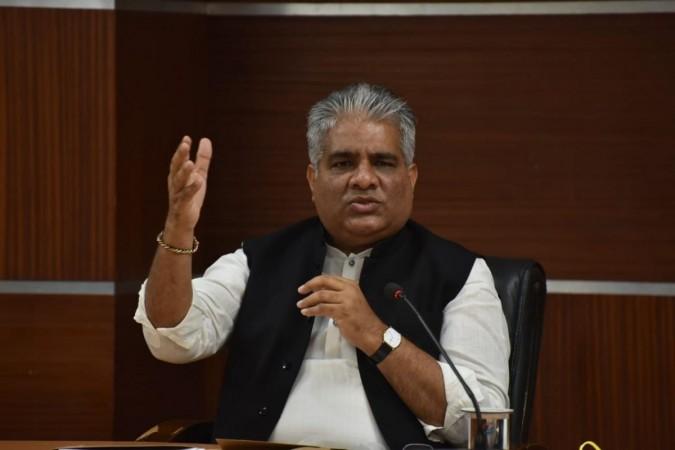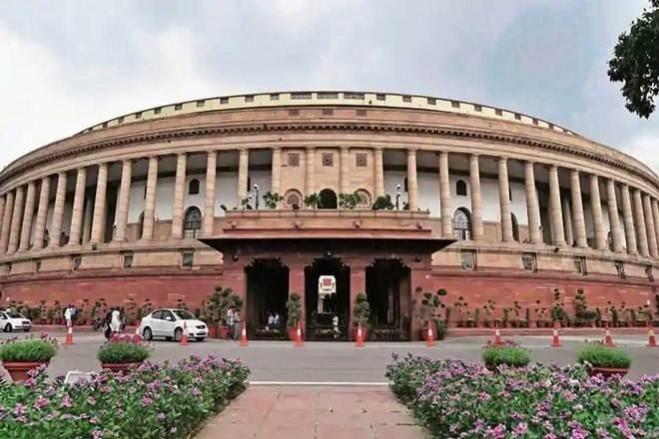Environmentalists have criticised the Environment, Forests and Climate Change Ministry for bringing about two amendment bills that are "detrimental" to the cause of environment in general, and wildlife in particular.
Environment Minister Bhupender Yadav had on Thursday introduced Biological Diversity (Amendment) Bill, 2021 and another one to amend the Wild Life (Protection) Act, 1972 on Friday in the Lok Sabha. Both the bills were introduced amid din created by the opposition parties over the SIT report/investigation of the Lakhimpur Kheri incident. In both cases, the house was adjourned soon after and there was no debate.

The government said that the biodiversity amendment bill was brought in after practitioners of Indian systems of medicine, researchers and the seed sector flagged compliance burden while the bill to seek amendment in the Wildlife Act, it said, was needed because of the requirement vis-a-vis Convention on International Trade in Endangered Species of Wild Fauna and Flora (CITES).
The text of the bill introduced in the Parliament claimed that the stakeholders wanted reduced compliance burden "in order to encourage a conducive environment for collaborative research and investments, simplify patent application process, widen the scope of levying access and benefit sharing with local communities and for further conservation of biological resources".

In case of the amendments to wildlife protection act, the bill text claimed that the government proposes to set up Standing Committees of State Boards of Wildlife that will function like the National Board for Wildlife, which is responsible for monitoring protected areas in the country and awarding or denying permission to projects in light of its threat to wildlife.
IANS sought to know experts' opinions on the two bills.
Pointing out that the implications of these amendments need to explained and debated in detail both within and outside the Parliament, Kanchi Kohli, researcher with the Centre for Policy and Research (CPR), said, "There are important changes like including the NITI Aayog on the NBWL. The NITI Aayog's recent proposals for infrastructure expansion are in direct conflict with some of the most ecologically and wildlife sensitive areas in India, especially the Andaman and Nicobar Islands and the Lakshadweep Islands. This would be an opportunity for the NITI Aayog to directly influence the decisions of the NBWL, which may not be desirable."
Terming it as "a Bill aimed to facilitate the destruction of India's Biodiversity and usurp people's right", legal advocacy firm, Legal Initiative for Forest and Environment (LIFE) had tweeted: "The main focus of the Bill is to facilitate the trade in biodiversity as opposed to conservation, protection of biodiversity and knowledge of the local communities. The amendments are completely contrary to the aim and objective of the Biological Diversity Act, 2002."
LIFE also pointed out that the Biodiversity Bill exempted cultivated medicinal plants from the purview of the act (but) it is practically impossible to detect as to which plants are cultivated and which are from the wild.
"This provision, though on the face of it looks benign, will only allow large companies to evade the requirement of both, prior approval or share the benefit with local communities," the initial assessment statement by LIFE said.
Kohli added: "The WLPA is a legislation which has been understood largely in expert circles, even though its clauses related to protected areas and wildlife trade have far reaching implications. The Covid-19 pandemic has brought a spotlight on zoonotics, which directly speaks to the changes regulating international trade through a dedicated section in the proposed law."
"The management mechanisms could gain from building in this aspect and also reconciling them with the Biological Diversity Act, which is also under discussion in the Parliament," she said.
A day after the Environment Minister introduced the Biological Diversity (Amendment) Bill, 2021 in the Lok Sabha, Congress leader Jairam Ramesh on Friday had expressed "strongest possible protest" that the government referred the Bill to a Select Committee and not to the Parliamentary Standing Committee.








